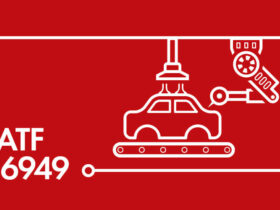In light of the most recent tactics and technology, hotels and property owners have reformulated this subject. Effective revenue management offers a clear roadmap for pricing and optimization and gives a hotel a way to assess its performance more accurately.
What is revenue management?
Using data and analytics to forecast demand, modify the price, and, in certain situations, other conditions of sale is the technique of revenue management. The goal is to maximize revenue from the business’s underlying inventory and supply. The art and science of “selling the right product to the right consumer at the appropriate price” have been referred to as revenue management. While some definitions include extra qualifiers like “at the right moment” or “via the proper channels,” the fundamental idea remains: adjusting how you offer a good or service to accommodate customers’ shifting wants.
To match your supply to their demand, you will eventually employ the knowledge you have gathered about how your consumers think and perceive value. This will show you how to spot a demand reduction, which indicates the time for lower rates, and when it is advisable to hang onto a room until you can get a higher price.
the distinction between Yield Management from Revenue Management
The idea of revenue management is quite similar to that of yield management. Still, it is seen as considerably wider, with the ultimate objective of maximizing room sales to maximize hotel profits. It involves a more thorough data analysis since it looks more closely at a hotel’s entire income than merely the turnover volume. To create a future prediction, data, and key performance indicators are employed. This projection will not just cover room usage but other sales components of the hotel as well, such as revenue from restaurants and spas.
The key distinction between the two is that revenue management gives you a comprehensive view. In contrast, yield management gives you the proper price optimization, which is a tiny portion of revenue management.
The essence of Revenue Management
Maximizing available income and making the most of the room inventory makes revenue management extremely vital to hotels. And all of this is accomplished by using data-driven judgment rather than hunches. For example, hotels may ensure that they cover their fixed expenses and charge for their services to enable them to be profitable because they have set costs regardless of whether or not their rooms are sold.
Revenue management can also encourage further innovation by offering information on services that the hotel may have yet to consider but might profit from. Moreover, revenue management may boost a hotel’s productivity, save expenses, increase demand forecasting, assist decision-makers in finding the ideal staffing ratio, and provide the establishment an advantage over rivals.
FINAL INSIGHT
Having a technique to accurately estimate your potential customers’ purchasing patterns and product demand is the key to developing a revenue management plan that works. This can include historical and present-day reservations, weather predictions, tourism statistics, and other business information. You will be better equipped to make educated modifications with this knowledge.
Hospital management must include revenue management, which may help hotels increase profits while giving their guests the desired services and facilities.











